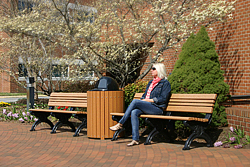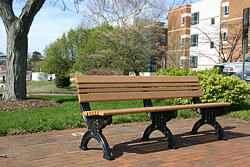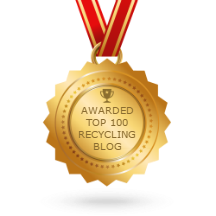Kiawah Island Goes Green
Kiawah Island has always been renowned as a naturally beautiful location. Filled with vegetation, flora and fauna, you could call it the archetypal "green" destination.

Since resort and real estate construction began on the island in the 1970's, all development has been carefully designed to blend into the island's natural habitat. In fact, before any commercial earth was turned, a complete inventory of the island's wildlife and plant life was undertaken.
This commitment to nature preservation led to many innovative developments, including the requirement that all buildings remain behind the secondary dune line to protect this critical habitat. There are also no streetlights on Kiawah, as the artificial light could attract Loggerhead Sea Turtles away from the beach on which they nest for six months of the year.
Long before "ecotourism" became a marketing term, the resort was giving guests the opportunity to donate $2 per night during their stay to the Kiawah Island Conservancy, which is dedicated to the preservation of the island.
Each of the five championship golf courses as well as the grounds of The Sanctuary have been certified by Audubon International as Cooperative Sanctuaries. This award-winning education and certification program recognizes golf courses and other facilities for their sensitivity to protecting the environment. To achieve the Audubon Sanctuary Certification, golf courses and The Sanctuary demonstrated a high degree of environmental quality in a variety of categories, including Environmental Planning, Wildlife Habitat Management, Resource Conservation, Waste Management and Outreach and Education.
 And, as the world does become more eco-conscious, the resort continues to respond with new initiatives, including additional nature programming, water conservation and recycling. Even the oyster shells from the summer oyster roasts are redistributed into the salt marsh around the island.
And, as the world does become more eco-conscious, the resort continues to respond with new initiatives, including additional nature programming, water conservation and recycling. Even the oyster shells from the summer oyster roasts are redistributed into the salt marsh around the island.
Kiawah Island Golf Resort 2011 Sustainability Initiatives
Solid Waste Reduction
Participation from all departments in KIGR's waste minimization programs is mandatory to the best of their abilities and spatial limitations. KIGR constantly monitors and manages recycling and trash pick-ups for the most efficient use of resources to best serve our guests and the Lowcountry. The types of items collected for rescue, recycling and composting, in addition to points of collection, will continue to expand to reduce the volume of land-filled material.
Public Area Recycling

In addition to providing residential curbside recycling pick up, Kiawah Island Resort has placed the Fibrex Envirodesign Recycled Plastic Lumber recycling centers at high traffic areas throughout the resort. The recycling receptacles are located at the main pool, park and nature center. The receptacles are set up to collect trash and bottles & cans and have received rave reviews from residents and guests alike.
Community Relations
Just as the beloved Loggerhead Sea Turtles and Painted Buntings play integral roles within the coastal ecosystem, Kiawah lsland Golf Resort plays an integral part in the Charleston Community. By placing a concerted effort on repurposing usable items, conserving water and energy, and focusing on their local economy KIGR is fulfilling a beneficial niche.
Sustainable Food Initiative
 "Sustainable" is food that is harvested in a manner that does not risk the health or future of the harvested population. While not compromising quality or guest satisfaction, efforts will be made to find local sources, organic products, and humane treatment of animals. Third party certifications will be sought out to verify these efforts where applicable.
"Sustainable" is food that is harvested in a manner that does not risk the health or future of the harvested population. While not compromising quality or guest satisfaction, efforts will be made to find local sources, organic products, and humane treatment of animals. Third party certifications will be sought out to verify these efforts where applicable. Sustainable Product Availability
Increase the availability of more environmentally, socially and economically responsible products and services for guests, as well as employee use. Sustainability will be judged by the whole lifecycle of the product from extraction of raw materials, transportation, use and finally to proper disposal.
Harmful Materials Reduction
Achieve 100% recycling of all batteries, fluorescent bulbs, and e-waste. Emphasis will be placed on properly disposing paint and vehicle oil filters. Increase the availability of less harmful cleaning products, especially those chemicals that may be washed into our local wetland systems.



































 The Evergreen Award itself “closes the recycling loop” in that it is made from recycled glass. The Award sets a high standard for other business partners to follow and is a wonderful example of how the federal government and businesses can work together. Play Mart is proud to be chosen by GSA as a partner that provide services and products that are environmentally sensitive and demonstrate its leadership in sustainability.
The Evergreen Award itself “closes the recycling loop” in that it is made from recycled glass. The Award sets a high standard for other business partners to follow and is a wonderful example of how the federal government and businesses can work together. Play Mart is proud to be chosen by GSA as a partner that provide services and products that are environmentally sensitive and demonstrate its leadership in sustainability. At many military installations around the United States there has been an initiative to improve the quality of life as well as moral. Therefore, not only have new homes been built, but true communities have been established on these installations. One such example exists at Fort Polk, Louisiana. A company called Picerne was awarded a privatization contract for Fort Polk . They set out to create a community that would greatly enhance the quality of life for soldiers and their families. This emphasis started with a focus on building and refurbishing quality homes but went beyond a home, a street, or just one neighborhood. The company sought to bring about a sense of community at
At many military installations around the United States there has been an initiative to improve the quality of life as well as moral. Therefore, not only have new homes been built, but true communities have been established on these installations. One such example exists at Fort Polk, Louisiana. A company called Picerne was awarded a privatization contract for Fort Polk . They set out to create a community that would greatly enhance the quality of life for soldiers and their families. This emphasis started with a focus on building and refurbishing quality homes but went beyond a home, a street, or just one neighborhood. The company sought to bring about a sense of community at  Fort Polk with play.
Fort Polk with play.  swings, age-appropriate play structures, basketball and tennis courts, picnic areas, and benches.
swings, age-appropriate play structures, basketball and tennis courts, picnic areas, and benches.







 Trash or waste audits can be performed that will provide a reasonable estimate of just how much trash volume and expense can be reduced when you strategically place
Trash or waste audits can be performed that will provide a reasonable estimate of just how much trash volume and expense can be reduced when you strategically place  The next time you visit (or drive by) any of the 250 Shopko stores nation-wide, take note of the
The next time you visit (or drive by) any of the 250 Shopko stores nation-wide, take note of the 





